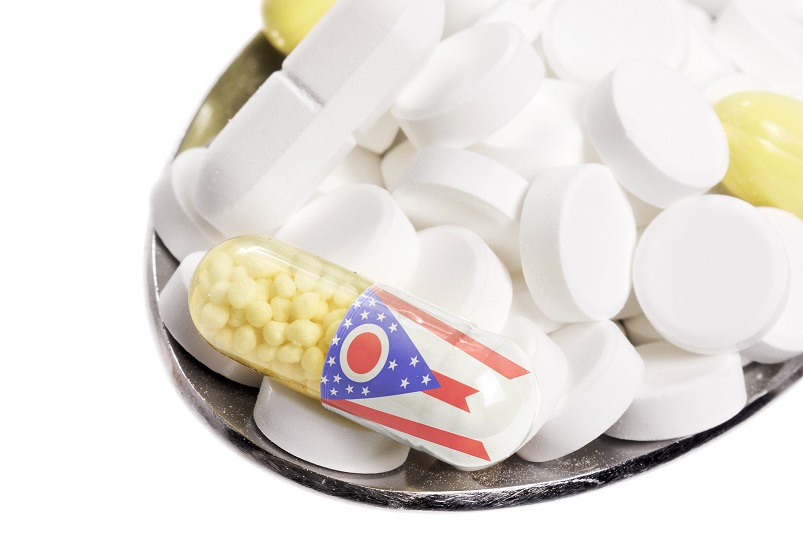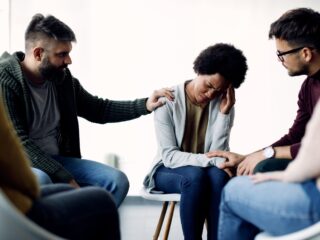Like the rest of the country, Ohio has been hit hard by drug overdoses and deaths. The state ranks second in drug overdoses nationwide. Additionally, 23 Ohioans die of heroin overdoses on a weekly basis. State lawmakers are working nonstop in creating legislation that will get drug addicts in Ohio the help and support they need. The Good Samaritan Law in Ohio is one piece of legislation that will help save the lives of addicts.
What is the Good Samaritan Law In Ohio?
Under this law, people that report overdoses are provided limited immunity from arrest or prosecution. The Good Samaritan Law in Ohio protects only the caller and overdose victim from arrest and/or prosecution for simple drug possession, driving under the influence and/or possessing paraphernalia. Ohio’s Good Samaritan Law does not protect those who sell drugs or those who drive under the influence of substances.
Ohio is among 37 states and the District of Columbia which have Good Samaritan laws on the books. With the law in place, those who witness an overdose of a family member or friend won’t have to second guess doing the right thing. In addition to immunity from arrest, the law allows addicts the option for treatment instead of serving jail time.
Ohio’s Good Samaritan Law is a positive step in curbing drug overdoses. In addition to this law, state legislators are working on additional measures to help ease addiction. House Bill 250 would require certain drugs to be authorized prior to being prescribed by doctors. Additionally, an opioid education bill recently passed requires every school district in the state to include education on the dangers of prescription medication.
How You Can Help Overdose Victims
When a family member or friend overdoses on drugs, feelings of panic overwhelm your senses. First and foremost, you must call 911 for professional assistance. Many drugs can cause violent and unpredictable behavior which can put you and the addict at risk. You also shouldn’t try to reason or excessively control an overdose victim. When professional help arrives, allow them to do their job and don’t offer your opinions to try to intervene.
When a family member or friend overdoses, administering First Aid is key for their survival until medical help arrives. First, you must check their airway, breathing patterns and their pulse. If they aren’t breathing and you feel no pulse, you must begin CPR. If you don’t know CPR, call 911 and the operator will coach you over the phone. If the overdose victim falls unconscious but is breathing, placing them in the recovery position.
To put a loved one in recovery position, kneel to one side and place the arm nearest to you at a right angle to their body with their hand upwards towards their head. Tuck the other hand at the side of their head on the cheek and bend the far knee at a right angle. Pulling on the bent knee, gently roll the person on their side. Open their airway by gently tilting their head back and check for obstructions.
Once you have stabilized the victim, it is important to monitor their vital signs. Most importantly, you must watch for signs of shock such as weakness, bluish lips and fingernails and decreasing alertness. When someone who overdoses starts losing consciousness you must keep them awake and aroused by any means necessary such as gently shaking, slapping their face or calling their name.
When Do You Call Medical Personnel?
When you witness an overdose by a loved one, there is a great deal of confusion in knowing when to call 911. Overdoses and other drug emergencies are often difficult to clearly identify. Your first and obvious course of action is to administer First Aid and to call emergency personnel for assistance.
If possible, try to find out what drug or drugs your loved one has taken. Collect any and all drug containers. You also need to collect any remaining drugs or a sample of the overdose victim’s vomit to the emergency room.
When you are waiting for medical personnel to arrive, it is highly recommended that you call the National Poison Control Center toll-free. When you call the hotline, experienced operators can provide further instructions. Utilizing the service provided by the National Poison Control Center is both free and confidential. All the poison control centers nationwide call this number regarding an overdose or poison prevention.
You can call the National Poison Control Center at any time and for any reason 24 hours a day and 7 days a week.
Do You Need Further Assistance? Call Ohio Addiction Recovery Center Today
For those who experience a drug overdose of a loved one, it is a wake-up call that a problem exists. It is important to find professional drug treatment right away to address a loved one’s addiction problem. Ohio Addiction Recovery Center features quality drug treatment programming administered by experienced addiction professionals.
Utilizing traditional and holistic rehabilitation methods, treatment staff can create an individualized treatment program that will fit each addict’s unique and specific needs. If your loved one needs help for their addiction, don’t wait another day–call Ohio Addiction Recovery Center toll-free right now.







